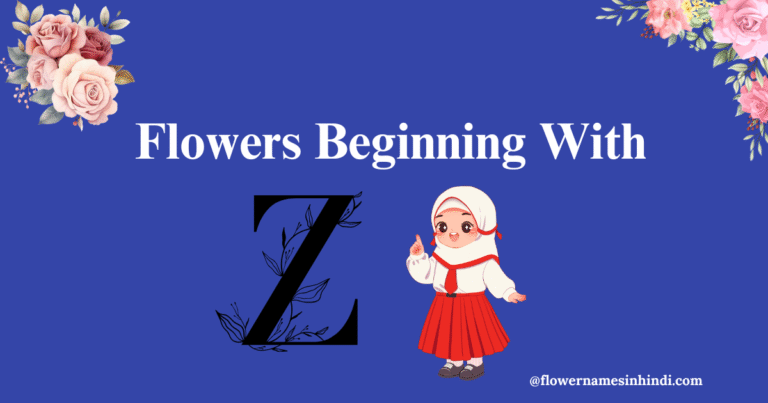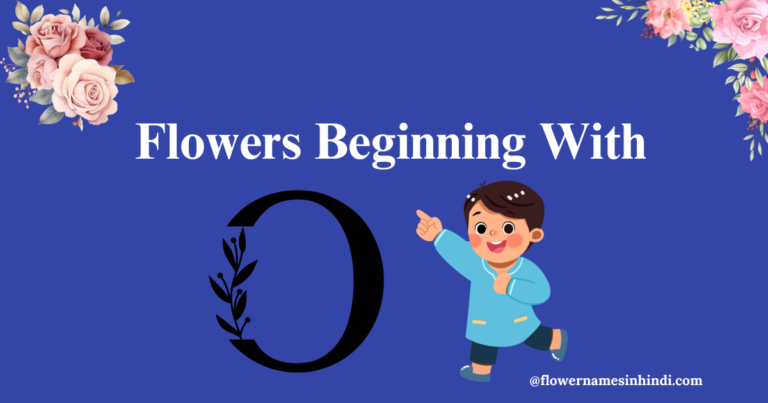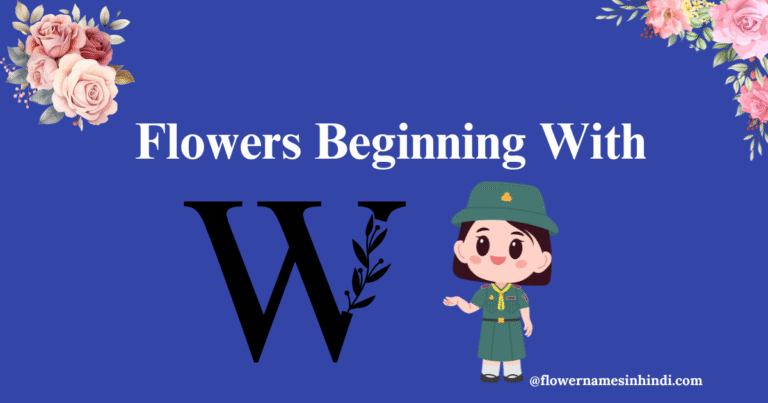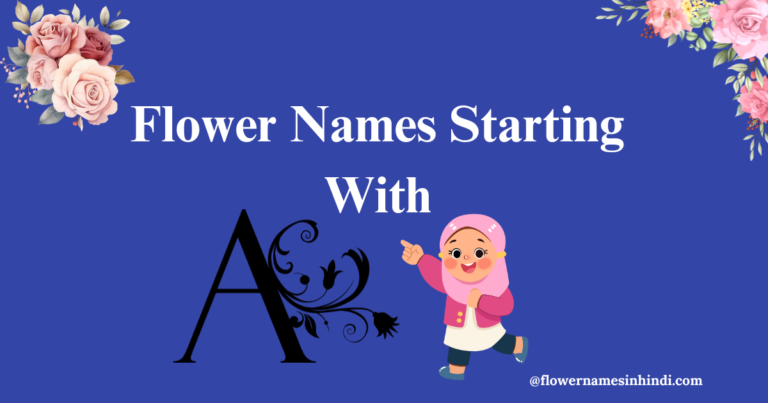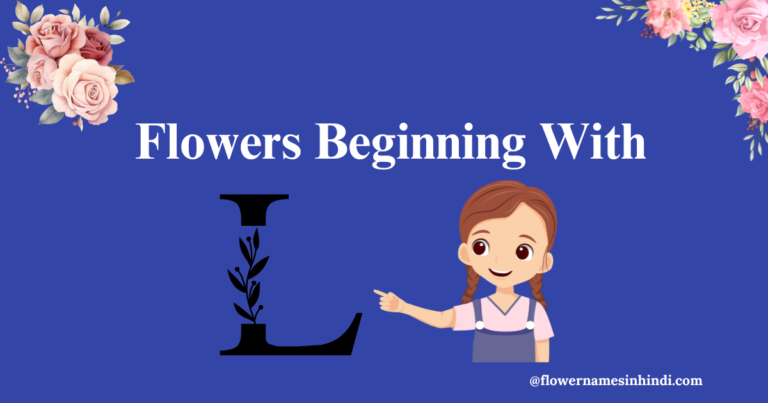12+ Delightful Flowers That Start with D (With Pictures)
Flowers attract us with their brilliant colours, distinct shapes, and mystical significance. Among the huge collection, those perennial flowers that start with D have a unique magic. Several English flowers names that start with D are frequently dazzling gardens, bouquets, and landscapes with their own beauty.
In the previous article, we discussed flowers starting with C. It will boost your knowledge and make you analyze the beauty of nature.
Flowers that start with D are as delightful as their names. Here is a list of flowers starting with D and explore how each one adds charm and color to gardens.
✅ Daffodil
✅ Dahlia
✅ Daisy
✅ Delphinium
✅ Dianthus
✅ Dogwood
✅ Dutch Iris
✅ Desert Rose
✅ Dragon Tree Flower
✅ Dusty Miller
✅ Drumstick Allium
✅ Daylily
✅ Deadnettle
Diascia

Diascia is a genus of annual herbaceous, flowering plant belonging to the Scrophulariaceae family. Its common name is twin spur, indicating the two (typically downward-pointing) spurs present on the backside of the flower. Moreover, Diascia shows a variety of colours such as pink, peach, coral, red, and white.
Most of the Diascia species grow up to 12–18 inches (30–45cm) in height. Diascia has dark green leaves and colourful blooms. It is a popular ornamental plant around the world.
| Feature | Detail |
| Botanical name | Diascia |
| No. of species | 70 species |
| Symbol | Joy, resilience, Friendship |
| Blooming time | Late Spring to Fall |
| Origin/ Location | South Africa |
Dicentra: Flowers That Start with D

Dicentra, commonly known as Bleeding Heart, is a flowering plant of the Papaveraceae family. It always prefers to grow in cold, temperate, damp forests with good drainage. It frequently coexists with ferns, Hosta, mosses, and other shade- or dappled-light-loving plants depending on location and area.
This genus includes plants whose flowers and foliage grow straight on stems from their roots. Dicentra has fantastic features, such as horizontally hanging flowers. Dicentra blooms with heart-shaped flowers and a little ‘drop of blood’ hanging in the center, create a remarkable appearance.
| Feature | Detail |
| Botanical name | Dicentra |
| No. of species | 20 species |
| Symbol | Compassion, love, remembrance |
| Blooming time | Spring |
| Origin/ Location | North America, Asia |
Dahlia

The garden showstopper, Dahlia is a genus of bushy herbaceous plants belonging to the Asteraceae family. They grow from swollen underground stems and showcase beautiful, multi-petaled blooms. These petals range in size from little pompoms to dinner-plate giants. The flowers show every color of the rainbow.
Dahlia, a flower with D, grows as an annual in colder regions but thrives as a perennial in warm climates. Additionally, their stems range in height from as low as 12 inches to more than 6–8 feet.
In the 19th century, a substance called inulin was extracted from dahlia tubers as a sugar substitute for diabetics, before insulin was discovered.
| Feature | Detail |
| Botanical name | Dahlia |
| No. of species | 49 |
| Symbol | Elegance, inner strength, commitment |
| Blooming time | Summer to Early Fall |
| Origin/ Location | Mexico, Central America |
Delosperma: Flowers That Start With D

Delosperma or Ice plant is a low-growing fleshy perennial famous for its bright, daisy-like blooms. Its thick and ice-like leaves dazzle in the sun. It belongs to the Aizoaceae family.
Delosperma leaves have grooves or are covered with bladder cells, which can sometimes develop into hairs. The leaf form is cylindrical or occasionally flattened. It can tolerate drought and is well-suited to dry, hot conditions.
| Feature | Detail |
| Botanical name | Delosperma |
| No. of species | 170 species |
| Symbol | Resilience, Endurance |
| Blooming time | Late Spring to Fall |
| Origin/ Location | South Africa |
Digitalis

Digitalis, a genus of flowering plant that starts with D, is commonly known as Foxgloves. It belongs to the Plantaginaceae family. The flowers are tubular shaped and vary in colour with species, from purple to pink, white, and yellow. Digitalis is mostly biennial or perennial for a short time and is a staple in cottage gardens, woodland settings, and wildflower meadows.
The biennial is grown as an ornamental plant and shows different colors, such as purple tints through pink and purely white.
Digitalis is a spectacular and impressive plant but is highly toxic if ingested. The extracts of these plants are used in medicines for heart diseases, i.e., cardiac glycosides.
| Feature | Detail |
| Botanical name | Digitalis |
| No. of species | 20 species |
| Symbol | Caution, Protection |
| Blooming time | Late Spring to Early Summer |
| Origin/ Location | Europe, Western Asia, Northwestern Africa |
Dracula: Flowers That Start With D

Dracula is also referred to as Monkey Orchid, as its flowers have a resemblance to the monkey’s face. It is a genus of many species which prefer cool, moist, and shady environments. There is a variety of colours shown by this plant, such as dark purples, reds, and whites.
Apart from colours, these flowers omit mushroom-like fragrance, which attracts pollinators. They can be difficult to grow outside their natural habitats because of their unique requirements like humidity, temperature, and light.
| Feature | Detail |
| Botanical name | Dracula |
| No. of species | About 120 species |
| Symbol | Mystery, Power |
| Blooming time | Varies by species, often in cooler seasons |
| Origin/ Location | Central and South America (Ecuador, Colombia) |
Delphinium

Delphinium or Larkspur is a genus of perennial flowering plants belonging to the Ranunculaceae family. The name Delphinium comes from the Greek word “delphinos,” which means dolphin, as the flower buds are considered to resemble a dolphin’s nose.
These blooms add a dramatic splash of color to gardens and floral arrangements. All species of this genus are toxic to humans as well as livestock and cause digestive discomfort and irritation to the skin.
| Feature | Detail |
| Botanical name | Delphinium |
| No. of species | 300 species |
| Symbol | Positivity, dignity, grace |
| Blooming time | Early to Mid-Summer |
| Origin/ Location | Northern Hemisphere (North America, Asia) |
Deutzia: Flowers That Start With D

Deutzia belongs to the Hydrangeaceae family. It is a charming shrub known for its profusion of delicate, star or cup-shaped flowers. They grow from 3 ft to 13 ft in (1–4 m) in height. Most are deciduous, while some subtropical species are evergreen.
The leaves are opposite and simple, with a serrated edge. The flowers are produced in panicles or corymbs; they are white in most species, occasionally pink or crimson. Identification of the species is extremely difficult, typically necessitating microscopic examination of the leaf hairs and seed capsule structure.
| Feature | Detail |
| Botanical name | Deutzia |
| No. of species | 60 species |
| Symbol | Purity, Innocence, Simplicity |
| Blooming time | Late Spring to Early Summer |
| Origin/ Location | Asia, Central America, Europe |
Dietes

Dietes have different common names, such as wood iris, African iris, Butterfly iris, Japanese iris and fortnight lily. These D names of flowers may vary from region to region. This genus belongs to the Iridaceae family.
It is an evergreen perennial plant that is noticed for its stunning, iris-like flowers and graceful, sword-shaped foliage. Deities are versatile plants; they may be used for bulk planting, borders and poolside planting. They can grow in a variety of conditions and can tolerate drought line situations.
| Feature | Detail |
| Botanical name | Dietes |
| No. of species | About six species |
| Symbol | Endurance, Resilience, Grace |
| Blooming time | Year-round, especially in warmer months |
| Origin/ Location | South Africa |
Daffodil: Flower That Start With D

Daffodils is a spring flowering perennial plant of the family Amaryllidaceae. Daffodils come in a variety of colors, the most popular being dazzling white or yellow. It may be used in pots or as a border. Large trees and wooded gardens are ideal places to plant daffodils.
Daffodils are among the first flowers to emerge in spring, symbolizing renewal and the arrival of warmer weather. These flowers are popular not just because they are beautiful but also because they are easy to grow.
The daffodil is the national flower of Wales and is proudly worn on St. David’s Day (March 1st). On this day, people across Wales pin the cheerful yellow bloom to their clothes as a symbol of pride, resilience, and renewal.
| Feature | Detail |
| Botanical name | Narcissus |
| No. of species | Over 50 species and many hybrids |
| Symbol | Renewal, Optimism, Hope |
| Blooming time | Early Spring |
| Origin/ Location | Europe, North Africa |
Dianthus

Dianthus, also known as carnations or pinks, is a diverse and beautiful genus of flowering plants belonging to the Caryophyllaceae family. These flowers are notable for their fringed, scented petals. There are several kinds with a variety of colours and floral shapes; some have little leaves and blooms.
The name Dianthus is derived from the Greek words “dios” (divine) and “anthos” (flower), evoking the plant’s renowned beauty and elegance.
One of the characteristic features of this plant is its long blooming period. Many species start flowering in late spring and continue into summer, while other varieties are reblooming or extending flowering periods.
| Feature | Detail |
| Botanical name | Dianthus |
| No. of species | 340 species |
| Symbol | Love, Admiration, Distinction |
| Blooming time | Late Spring to Summer |
| Origin/ Location | Europe, Asia |
Dryas: Flowers That Start With D

Dryas, also called Mountain Avens, belong to the Rosaceae family. The genus is known for its unique, cup-shaped blooms and lovely, evergreen foliage. They may survive in a variety of unshaded conditions. These include alpine settings with sand or gravel substrate and similar substrates in flat tundra lowlands.
Moreover, fen habitats on organic ground with mild shading from neighbouring sedges or shrubs. They produce white or yellow flowers, which are usually solitary or in small clusters, rising above the plant’s rosette of leaves.
| Feature | Detail |
| Botanical name | Dryas |
| No. of species | About 7 species |
| Symbol | Endurance, Resilience, Adaptability |
| Blooming time | Late Spring to Early Summer |
| Origin/ Location | Arctic and Alpine regions |
Datura: Flowers That Start With D

Datura is a genus of highly poisonous flowering plants belonging to the nightshade family Solanaceae. They have different names, commonly known as Jimson weeds, thorn apples, devil’s trumpets, or mad mop. In the past, several species are used as both poisons and hallucinogens due to their effects and symptoms.
Datura contains both short and tall leaves, which range in colour from dark green to grey-green. They may grow up to 7 feet (2 metres) tall. Datura blooms are usually white, although they may also be yellow, pinkish, or purple.
| Feature | Detail |
| Botanical name | Datura spp. |
| No. of species | About 9-12 species |
| Symbol | Mysticism, Transformation, Danger |
| Blooming time | Summer to Early Fall |
| Origin/ Location | Tropical and Subtropical regions worldwide |
Conclusion on Flowers That Start With D
In conclusion, flowers that start with the letter D offer a diverse array of beauty, color, and symbolism. In this article, we have explored different flowers with the one alphabet, such as annual flowers that start with D, blue flowers that start with D, and purple flowers that start with D.
You can find complete information about these flowers in this blog. If you want to read about flowers that start with E, visit our website.


